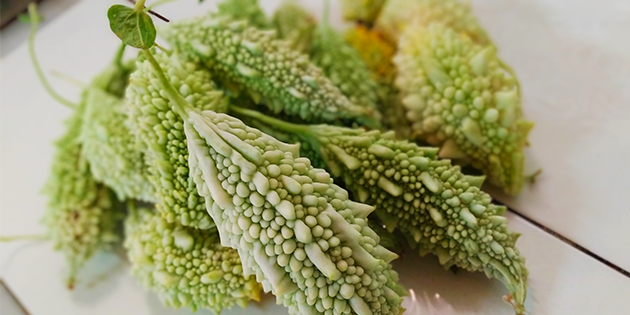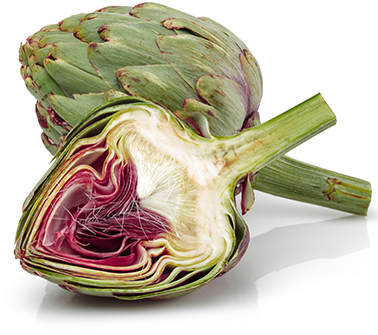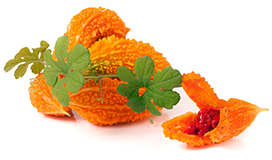Benefits of Bitters

Benefits of Bitters

Author: Emily Greene-Hartsfield, ND
You may have noticed cocktail bitters listed on the drink menu at your favorite restaurant, or maybe you’ve seen a bottle of them while walking down the aisles at the local liquor store. Maybe you heard about them and you’re wondering “what are bitters anyway?” There are many benefits to bitters, and not just as a trendy cocktail flavoring.
So, What are They?
Historically, bitters were used medicinally for everything from poor digestion to various infections. Over thousands of years people have eaten many wild plants which feature bitter flavors. Some herbs and foods that have been enjoyed for their bitter qualities include: dandelion, radish, artichoke, wormwood, turmeric, gentian, coffee, kale, dark chocolate, arugula, bitter melon and chamomile. Ginger, while not strictly a bitter, is a warming herb that has many functions including acting as a digestive stimulant. However, with the advent of processed foods, bitter flavors have largely been replaced by refined carbohydrates and sweets. Bitter is now a flavor lacking in many American diets.

Bitters and Digestion
Bitter receptors which sense bitterness are located throughout the body, not just on the tongue. Bitterness is a complex flavor which excites and tonifies the digestive system and has effects on other systems of the body. Bitters stimulate the vagus nerve and glossopharyngeal nerve, which moves the body out of a sympathetic and into a parasympathetic state—the “rest and digest mode.” This switch stimulates the digestive system, which causes secretion of digestive fluids from the gastrointestinal system starting with the mouth and including the stomach, pancreas, and intestines. This leaves the body primed and ready to digest and absorb the nutrients from the foods that are eaten.
Bitters help to regulate peristalsis which can encourage normal bowel movements. Not only do bitters help regulate peristalsis, they are often paired with an antispasmodic or carminative herb which helps ease bloating and gas.
The tonifying quality of bitters can include the tightening of the sphincter at the top of the stomach. This tightening prevents gastric secretions from rising, which may help sufferers of indigestion. Bitters also regulate the production of stomach acid, which can not only act as a digestive aid, but can also help with nausea.
“Bitters act as an agonist to the secretion of ghrelin hormone which can increase feelings of hunger. They also increase secretion of CCK (cholecystokinin) and GLP-1 (glucagon-like peptide-1) which slow gastric emptying.”
Hormones and Appetite
Bitters can stimulate hormone production, supporting a normal appetite and encouraging a feeling of fullness without overeating. Appetite support works by several mechanisms. Bitters act as an agonist to the secretion of ghrelin hormone which can increase feelings of hunger. They also increase secretion of CCK (cholecystokinin) and GLP-1 (glucagon-like peptide-1) which slow gastric emptying. This means that while hunger is initially increased, there is a delay in gastric emptying, longer satiety, and less food eaten over time.
Bitters and Blood Sugar
People are hardwired to select sweet flavored foods, as sweets supply a ready source of energy. This may work at times when food is scarce, but it may not be helpful with an abundance of available foods. Bitters can soothe sugar cravings by decreasing sugar signaling to the brain, possibly by blocking sugar receptors.

Studies also show:
- Bitters slow the digestion of carbohydrates by inhibition of a-glucosidase. This prevents absorption of carbohydrates in the intestinal lumen, which may lead to better control over blood sugar.
- Bitters increase PPAR-y (peroxisome proliferator-activated receptor gamma) and GluT-4 (glucose transporter type 4) protein expression at the cellular level, leading to enhanced insulin signaling, improved insulin sensitivity, increased glucose uptake, and decreased blood sugar levels.
- Bitters have also been shown to increase glycogen storage by the liver, reducing blood glucose.
Bitters and the Liver
The phytochemicals in bitters can support the cells of the liver directly by establishing healthy antioxidant production, bile synthesis, and metabolism. By supporting the liver, bitters can promote a gentle detoxification of the body. As a bonus, this detoxification may mean healthier skin due to the decrease of toxins in the body.
There are so many benefits to taking bitters. They are easy to incorporate into a daily diet and not just for cool cocktails!
This article has been shared with permission from Energetix Corp.
As a pioneer in bioenergetic medicine for more than 25 years, Energetix formulates with an appreciation for the body’s innate wisdom and a recognition of its diverse energy pathways. The Energetix line of over 120 products contains innovative homeopathic, spagyric botanical and nutritional formulas to address a wide range of clinical concerns. Health care providers may feel free to call Practitioner Support for any questions about bitters and other features of our products.
Emily Greene-Hartsfield, ND is a Practitioner Support Specialist and Quality Product Manager at Energetix Corp in Dahlonega, GA. Dr. Hartsfield earned her Doctor of Naturopathic Medicine degree from Bastyr University in Seattle, WA., received her BSc in Biology with a concentration in Medical Laboratory Science from Auburn University at Montgomery, and holds an Associate’s degree in Bioscience Technology.

